Too much doomsday? Pop culture goes full-on apocalypse
Some say the world will end in fire. Some say in ice.
Some also say it will end with "Georgia Flu," a virus with a 99 percent mortality rate ("Station Eleven.") Or with a meteor strike ("The Road"). Or an alien invasion ("Falling Skies"). Or the moon crashing into the Earth ("Moonfall"). Or a catastrophic fall in birthrate ("Children of Men"). Or an environmental disaster ("Snowpiercer"). Or an AI takeover ("The Matrix"). Or zombies ("The Walking Dead"). Or vampires ("Daybreakers"). Or cordyceps, a parasite that turns people's heads into erupting mushrooms ("The Last of Us").
There's something Robert Frost never thought of.
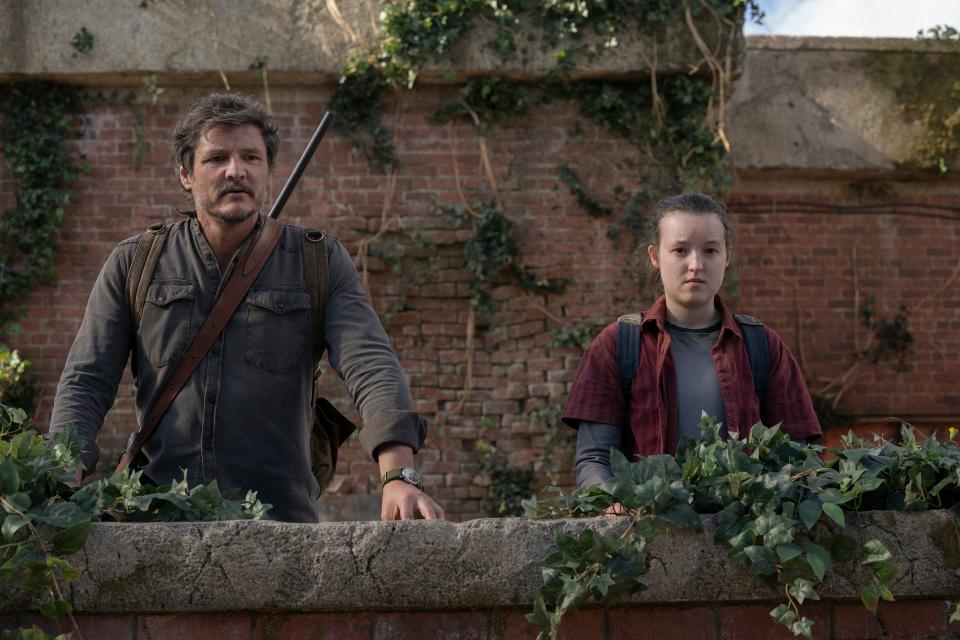
And if the world doesn't end, exactly, it will turn into a dystopia, a hellscape of patriarchal oppression ("The Handmaid's Tale"), orgiastic violence ("The Purge"), or deadly, remorseless competition ("Squid Game").
This, in the second decade of the 21st century, is what is known as "escapism."
End of the world as we know it
Apocalypse now? Apocalypse always. In books, movies, streaming series, the doomsday clock is forever ticking. But just how healthy is a steady diet of Armageddon?
"We're all affected by what we watch," said Mina Ahn, professor of psychology at Bergen Community College in Paramus. She, like many of us, has wondered about the torrent of flood, fire, fascism and fungi that pop culture has loosed into an already-troubled world. "It can be overwhelming, paralyzing," she said.
As if the real world wasn't overwhelming enough.
It is a difficult time. Pandemic, climate change, political instability and cultural turmoil have turned us all into doomsday preppers. It's no mystery why such cataclysmic stories are seeping into our entertainment.
The question is whether they're helpful right now. Or are they merely overwhelming us with fear — paralyzing us, as F.D.R. once warned, when effort is most needed?
"I do think numbing is one of the primary effects," aid Bill Indick, associate professor of psychology at William Paterson University in Wayne.
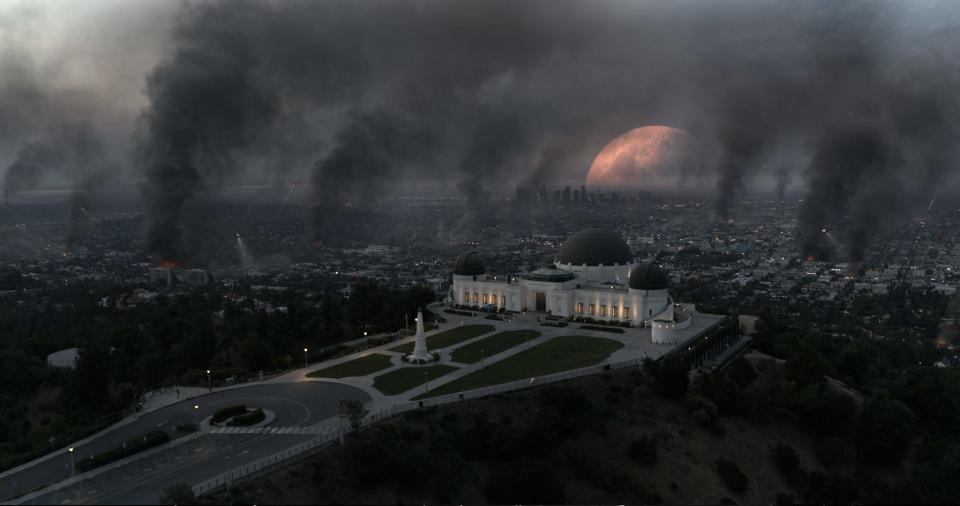
"The purpose of anxiety is to move us into action," he said. "If we're just churning it into entertainment and fantasy, then we're not acting."
Been there, done that
Doomsday stories aren't new. Ragnarok, back in the day, gave the Norsemen a good shudder. The Bible has several juicy catastrophes: from Sodom and Gomorrah in chapter one to the Four Horsemen in the grand finale. And let's not forget all that rain in Genesis.
"In 'Noah's Ark,' everybody dies except him," Indick said.
But it must be rare that any culture is as preoccupied with Doomsday as we are now. It's in our TV shows, movies, books. Dystopia, in the publishing world, is its own (huge) Young Adult category: "Hunger Games," "Divergent," "The Maze Runner."
"My students are growing up in a world on fire," Nyack author Christopher M. Hood told The Record last year. He's a teacher at New York's prestigious Dalton School. He's also the author of "The Revivalists" — in which the end of the world is brought about by "Shark Flu."
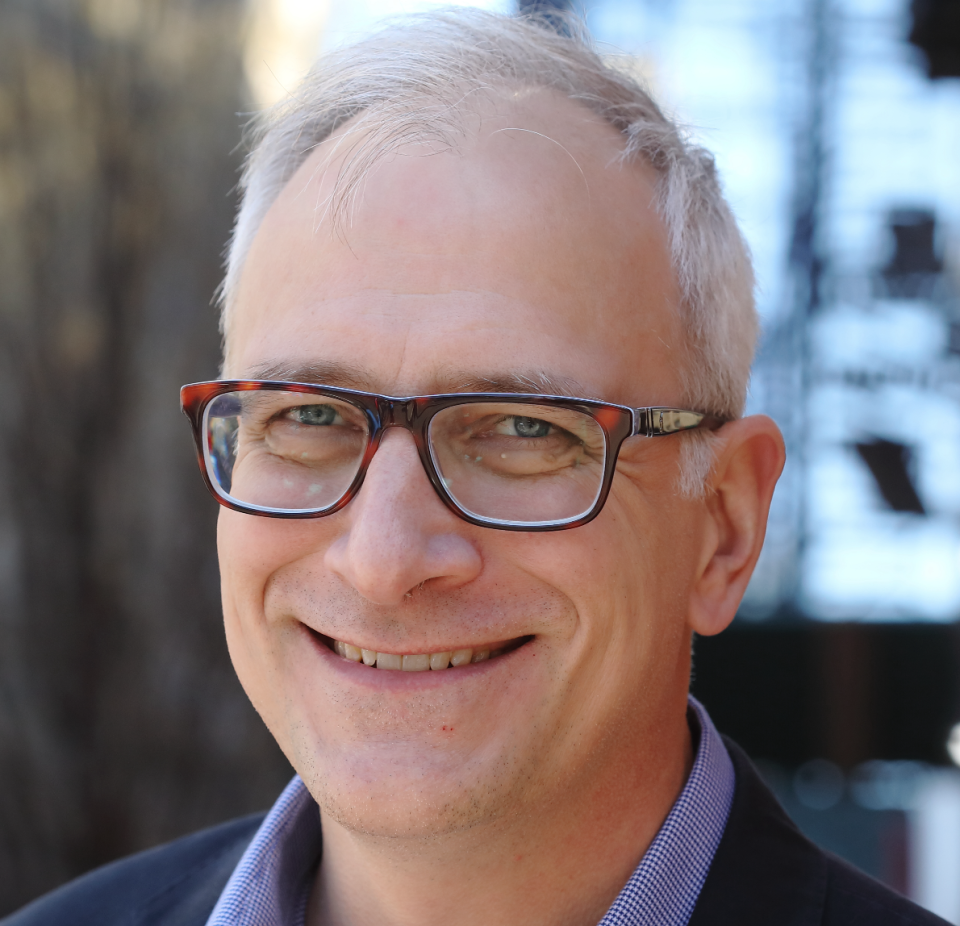
"My generation grew up with a kind of optimism, a sense of things getting better," Hood said. "And my students are reckoning with climate devastation, the rise of fascism, and the sense that our financial system doesn't work for regular folks anymore."
The bad old days
You'd almost think we were the first generation to live on the precipice. We're not. And it's interesting that our grandparents, on the whole, did not react this way.
In the 1950s, fears of the H-Bomb were every bit as vivid as climate change is today. And moviegoers did channel some of their anxieties into B-movie science-fiction ("The Day the World Ended," "When Worlds Collide"). But on the whole, they were more interested in Marilyn Monroe.
In the 1940s, the fascist threat was far more real than it is now. Yet the Nazi menace was the cue, not for End of Days brooding, but for romance ("Casablanca") and rousing war movies.
In the 1930s, 25 percent of the country was out of work. What kind of entertainment did America turn to? Musicals. And their kids read "Nancy Drew."
So why is it different for us? Why is today's pop culture so bleak?
Hard-wired
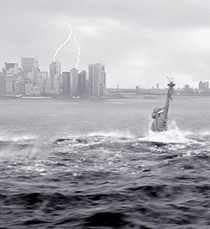
Possibly, the answer might be as simple as the one from "All the President's Men": "Follow the money." "What sells?" Indick said. "Fear sells. Violence sells."
All of us are hard-wired to look for danger, Ahn points out. And this seems like a particularly dangerous time.
"We don't need to pay attention to the good or peaceful things, they don't hurt us," she said. "But if we don't pay attention to danger, we don't survive."
End of World stories, Indick says, are this generation's coping mechanism. Whatever the Worst Case Scenario, inevitably someone survives. Watching a hero or heroine get through the ultimate ordeal can be empowering.
"We get a lot, psychologically, by seeing a disaster, by seeing people die, and more important, seeing people survive, get through it," he said. "In real life, watching the world falling apart around us, there's very little we can do as individuals. But by watching movies, we become active. We act through the heroes."
But that might be its own problem, he said.
Doomsday stories tend to pit the hero, or heroine, against a horde of threatening Others — zombies, mutants, aliens, or at the very least, competitors in a life-or-death game. It's Us or Them. Such thinking, of course, has its parallels in our current political discourse.
"In the zombie movie, they're less than human," Indick said. "When I take an assault rifle and mow down beings who are not human, it's a subtle but forbidden pleasure. I kill everyone who is less than me."
Breakdown
Such stories are only secondarily about a climate disaster, pandemic or rogue asteroid. The real terror comes from another source: the breakdown of civilized norms. Maybe that's what we're all prepping for.
"We live in an extremely unjust world, in many ways," Ahn said. "I can see how this sort of simulation could be helpful."
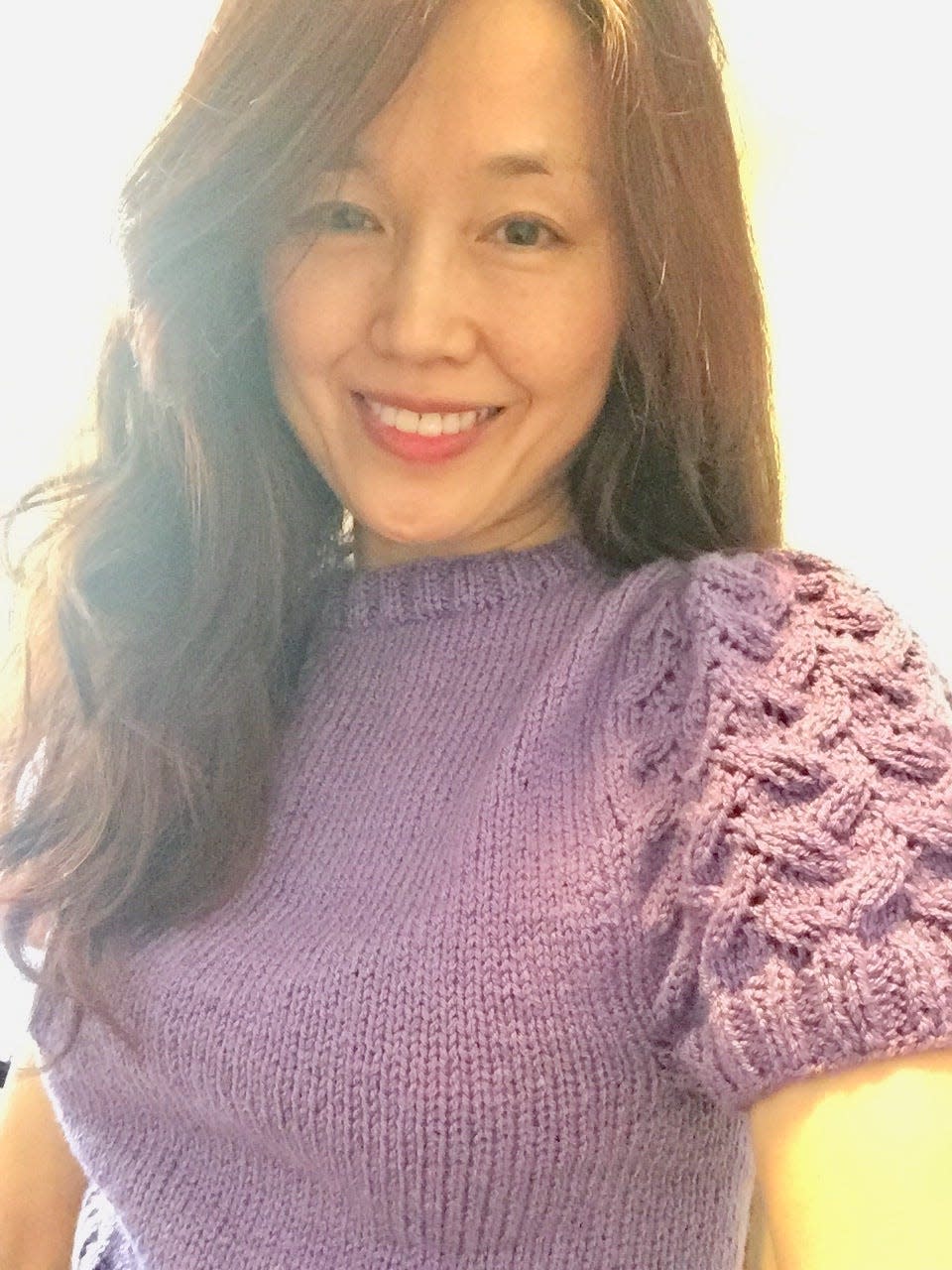
The desperate people pitted against one another in "The Hunger Games" and "Squid Game" are just today's haves and have-nots, taken one step further. Part of the interest of such stories, and in shows like "The Last of Us" and "The Walking Dead," is the built-in ambivalence. Cooperation, or competition? Go it alone, or risk reaching out to others?
In some stories, the characters do cooperate. "In 'Squid Game,' in the tug-of-war, the ones who won were the ones who collaborated with each other," Ahn notes. In "The Hunger Games," Katniss is motivated, not by her own survival, but by love of her sister. "She volunteers to go in her place," Ahn said. "She didn't have to."
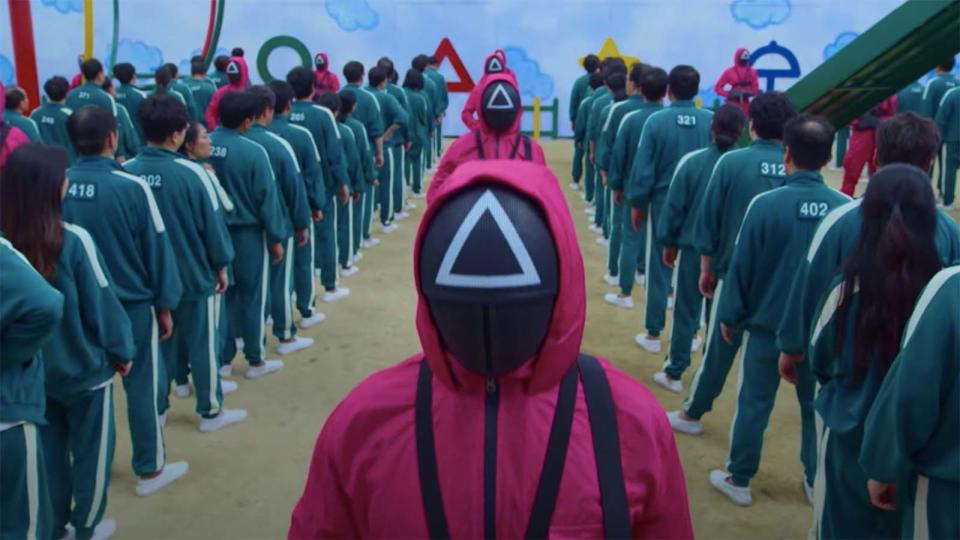
But most doomsday stories turn on the idea of a single, super-resourceful individual — a man or woman who makes it through the worst of the worst, solely through their own efforts.
That, Indick points out, is not what will get us through our current crisis. What will save us is working together: changing regulations, changing behaviors, acting responsibly and voting for responsible people.
Sound like an exciting movie? Nah.
"The human tendency is to look for a hero, a president, a messiah," Indick said. "The truth is that we're never going to save the world waiting for Superman. We must all work together to save the planet. We all have to bail water."
Meanwhile, here's the antidote...
We love a good scare as much as the next worrywart. Yet a steady diet of doom, like a steady diet of anything, may not be so healthy. "We do need a counterbalance," Indick said.
If you're suffering from Armageddon overload, here are some alternatives. These shows and movies are a diverse lot, but they have this in common: They should leave you feeling a little bit better about the world.
They might even give you some new reasons to want to save it.
∎ "Reservation Dogs" (Hulu). The funniest, warmest, least predictable series in years, this "Stand by Me" story of teens supporting teens is set in — of all places — an American Indian reservation. It's a world most of us know too little about, yet series creators Sterlin Harjo and Taika Waititi find humor, compassion, and decency in kids, in adults, in Native and non-Native Americans alike.
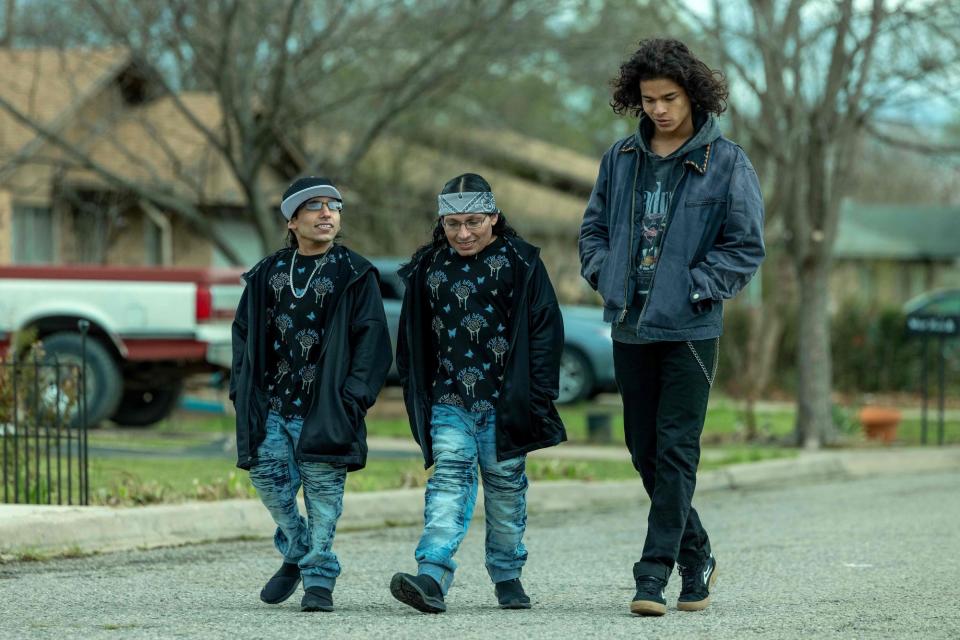
∎ "Ted Lasso" (Apple TV+). A big doofus of a U.S. coach (Jason Sudekis) is flown overseas to whip an English football team into shape. He's so cluelessly, cheerfully American that he — of course — wins over all the hard cases at AFC Richmond. A bit broad, perhaps, but this is everybody's feel-good show right now, and you'll see why.
∎ "Betty" (Hulu). Here's another subculture that may be new to you: A teen girls' skateboarding collective in New York, trying to claim its own turf in a male-dominated world. A breezy, hip, good-hearted 2020 series that likes all its characters.
∎ "Minari" (Hulu, Amazon Prime). A Korean father and his family move to Arkansas, in Lee Isaac Chung's gentle, Oscar-nominated 2020 movie about a clash of cultures. It's sweet, funny, generous to all its characters — Korean or otherwise. Maybe we can all get along.
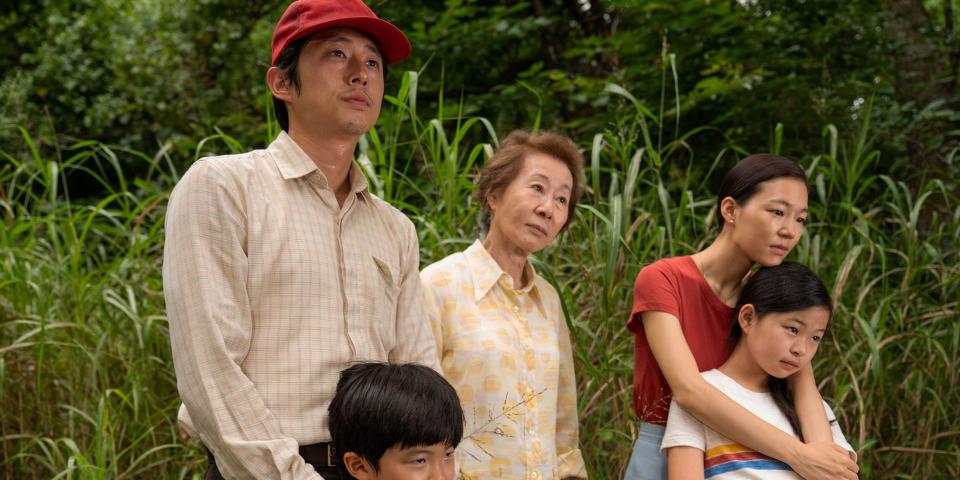
∎ "High Maintenance" (HBO). You can't get much mellower than a comedy series about a pot dealer (Ben Sinclair). He's the link in this episodic Vimeo series that later migrated to HBO, as his bicycle delivery business brings him into the lives of a wide assortment of nutty Brooklynites. If it is the end of the world, Sinclair is who you'd want to have your final smoke with.
This article originally appeared on NorthJersey.com: Escapism in pop culture: It's always the end of the world

